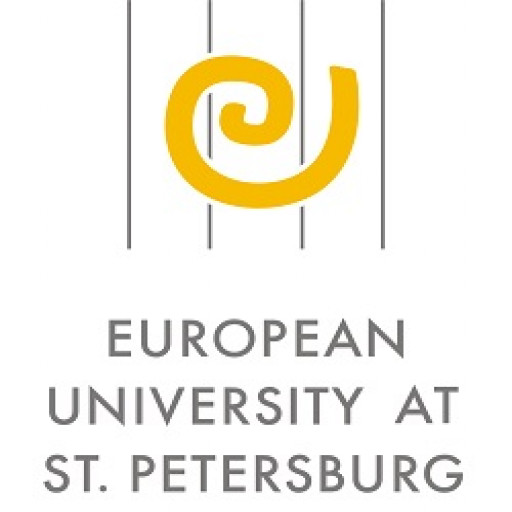Energy Politics in Eurasia (ENERPO) is a specialized graduate program offered by the European University at St. Petersburg, designed to explore the complex dynamics of energy governance, policy, and security across Eurasian countries. This interdisciplinary program aims to equip students with a comprehensive understanding of the political, economic, environmental, and geopolitical factors influencing energy resources, infrastructure, and markets in the Eurasian region. Students will examine the key actors involved in energy politics, including states, international organizations, corporations, and non-state actors, as well as the institutional frameworks and legal norms shaping energy policies. The program emphasizes analytical skills necessary to assess regional energy strategies, conflicts, cooperation mechanisms, and the implications of global energy transitions for Eurasian countries.
Throughout the coursework, students will analyze case studies related to hydrocarbon extraction, pipelines, renewable energy developments, and energy security challenges. They will also investigate the impact of geopolitical tensions, such as territorial disputes and sanctions, on energy cooperation and competition in Eurasia. The program integrates theoretical approaches with practical insights through seminars, workshops, and internships, fostering a deep understanding of the region’s energy landscape. Graduates will be prepared for careers in international organizations, governmental agencies, think tanks, and the private sector, where they can contribute to policy development, research, and analysis in energy security and Eurasian geopolitics.
The curriculum covers core topics including the history of energy developments in Eurasia, regional geopolitical analysis, energy market dynamics, environmental considerations, and the role of emerging technologies in energy transformation. Interdisciplinary in nature, the program combines political science, international relations, economics, and environmental studies to provide a holistic perspective on issues at the intersection of energy and geopolitics. The program also encourages multilingualism and cross-cultural understanding, given the diverse linguistic and cultural landscape of Eurasia. By fostering critical thinking and a nuanced understanding of regional complexities, ENERPO aims to prepare students for impactful careers addressing the urgent energy and security challenges facing Eurasia today and in the future.
Energy Politics in Eurasia (ENERPO) is a specialized graduate program designed to provide students with a comprehensive understanding of the political, economic, and strategic issues related to energy resources and infrastructure across Eurasia. This interdisciplinary programme combines insights from political science, international relations, economics, and environmental studies to prepare graduates for careers in policy analysis, international organizations, energy companies, and research institutions. Throughout the course, students explore the historical development of energy resources in Eurasia, the geopolitical significance of oil, gas, and renewable energy sources, and the role of state policies in shaping energy security and regional cooperation. The curriculum includes core modules such as Eurasian energy geopolitics, international energy governance, energy security and conflicts, sustainable development and environmental challenges, and the impact of technological innovations on regional energy markets. Additionally, students engage in case studies of key Eurasian countries, examining their energy policies, geopolitical strategies, and interactions with global powers. Practical skills are emphasized through seminars, workshops, and internships, providing real-world experience in policy analysis, negotiations, and strategic planning. The program encourages critical thinking about the future of energy in Eurasia, including the transition to renewable sources and the evolving role of international institutions. With faculty experts specializing in Eurasian energy issues, students gain access to cutting-edge research and regional insights. The interdisciplinary approach ensures graduates are well-equipped to understand and address complex energy challenges that impact regional stability and global energy markets. Graduates of the ENERGYPO program will be prepared to contribute effectively to policy development, strategic decision-making, and research on energy issues in Eurasia, positioning them for careers in government agencies, international organizations, private sector energy companies, and non-governmental organizations committed to sustainable and secure energy development in the region.
The Energy Politics in Eurasia (ENERPO) master's program at the European University at St. Petersburg is designed to equip students with comprehensive knowledge and analytical skills related to the political and economic aspects of energy resources in Eurasian countries. The program requires applicants to hold an undergraduate degree in political science, international relations, economics, or related disciplines from an accredited university. Prior experience or coursework in energy policy, Eurasian geopolitics, or regional studies is advantageous but not mandatory. Prospective students must demonstrate proficiency in English, evidenced by a valid TOEFL or IELTS score, to ensure they can engage effectively with scholarly texts and participate actively in seminars and discussions. The program emphasizes interdisciplinary approaches, combining political analysis, economic modeling, and regional studies to understand complex energy issues. Candidates are expected to submit a motivation letter outlining their interest in Eurasian energy politics, experience in related fields, and career goals upon completing the program. Academic transcripts from previous studies must be provided, highlighting coursework relevant to the program's focus. Additionally, applicants should prepare two letters of recommendation from academic or professional references who can attest to their analytical skills, research capabilities, and motivation. The selection process evaluates academic background, language proficiency, motivation, and potential to contribute to the field of energy politics in Eurasia. International students are encouraged to apply, and the university offers support for visa procedures and integration into campus life. The program's curriculum consists of core courses in energy policy, regional geopolitics, energy law, and environmental considerations, supplemented by elective courses that allow specialization in areas such as renewable energy, security studies, or economic development. To complete the program, students must successfully pass all coursework, participate in seminars, and submit a master's thesis focused on a relevant issue within Eurasian energy politics. The thesis defense is a mandatory requirement for graduation. Overall, the ENERPO program aims to prepare graduates for careers in research, policy advising, international organizations, or governmental agencies involved in energy development and regulation across Eurasia.
Want to improve your English level for admission?
Prepare for the program requirements with English Online by the British Council.
- ✔️ Flexible study schedule
- ✔️ Experienced teachers
- ✔️ Certificate upon completion
📘 Recommended for students with an IELTS level of 6.0 or below.
Funding for the Energy Politics in Eurasia (ENERPO) program at the European University at St. Petersburg primarily comes from a combination of university resources, governmental support, international grants, and potential partnerships with industry stakeholders. The program is designed to attract academically talented students interested in the complex issues of energy security, geopolitical dynamics, and sustainable development within Eurasia. Tuition fees are structured to ensure accessibility while providing the university with necessary financial support to maintain high-quality educational standards. Scholarships and financial aid options are available for outstanding students based on academic performance and need, aiming to promote diversity and inclusion within the student body. The university also actively seeks international funding opportunities and research grants from organizations such as the Russian Science Foundation, European Union programs, as well as bilateral cooperation projects with research institutions in Eurasian countries. These funds support not only the core curriculum but also extracurricular activities, research projects, and internships, enriching students’ practical experience. Additionally, the program benefits from collaborations with energy companies, governmental agencies, and think tanks, which often sponsor research initiatives and provide resources for academic conferences and workshops. The European University at St. Petersburg emphasizes sustainable financial planning to ensure ongoing program viability, including periodic fundraising campaigns and alumni donations aimed at enhancing facilities and expanding scholarship offerings. Furthermore, the program’s integration into the university's broader strategic development plans aligns with national and regional priorities on energy policy, enabling access to state funding and supporting efforts to develop future leaders in Eurasian energy politics. Overall, the financing structure of the ENERPO program ensures that it remains financially sustainable, accessible to a diverse student cohort, and aligned with the broader goals of advancing knowledge and policy expertise in Eurasian energy issues.
The Energy Politics in Eurasia (ENERPO) program at the European University at St. Petersburg is a graduate-level academic course designed to provide students with a comprehensive understanding of the complex political, economic, and strategic issues surrounding energy resources in the Eurasian region. This program aims to prepare specialists capable of analyzing the geopolitical significance of energy corridors, pipelines, and resource distribution, as well as the influence of energy politics on regional stability and international relations. Students engage with a multidisciplinary curriculum that covers topics such as energy policy, international energy law, regional security, and energy market dynamics. The program emphasizes the strategic interests of key regional powers including Russia, China, and the countries of the European Union, and explores how energy resources underpin their foreign policies and economic development strategies. Teaching methods include lectures by leading academics and practitioners, case studies of major energy projects, and participatory debates on current issues such as energy transition and sustainability. Graduates of the program often go on to careers in government agencies, international organizations, think tanks, and the energy sector, where they contribute to policy development, strategic planning, and diplomatic negotiations. The program also offers opportunities for internships and research projects, fostering practical experience and research skills. Given the importance of Eurasian energy resources in global geopolitics, this program provides valuable insights for future policymakers, analysts, and business leaders engaged in the energy industry. Through its rigorous curriculum and expert faculty, the ENERPO program aims to cultivate a nuanced understanding of energy geopolitics, fostering analytical thinking and strategic expertise essential for navigating the complex landscape of Eurasian energy politics.











